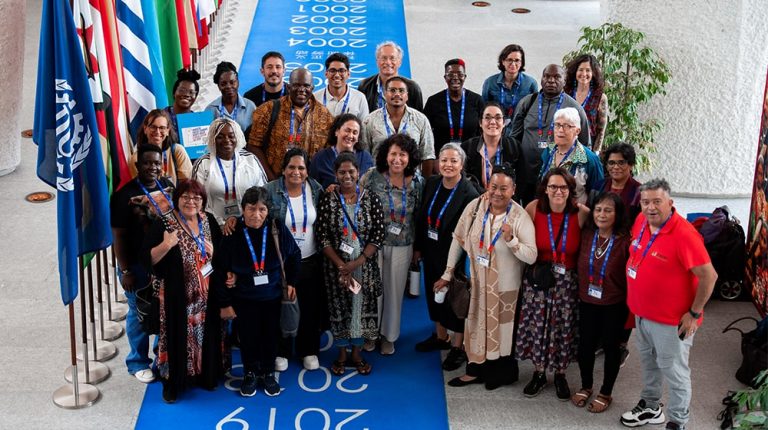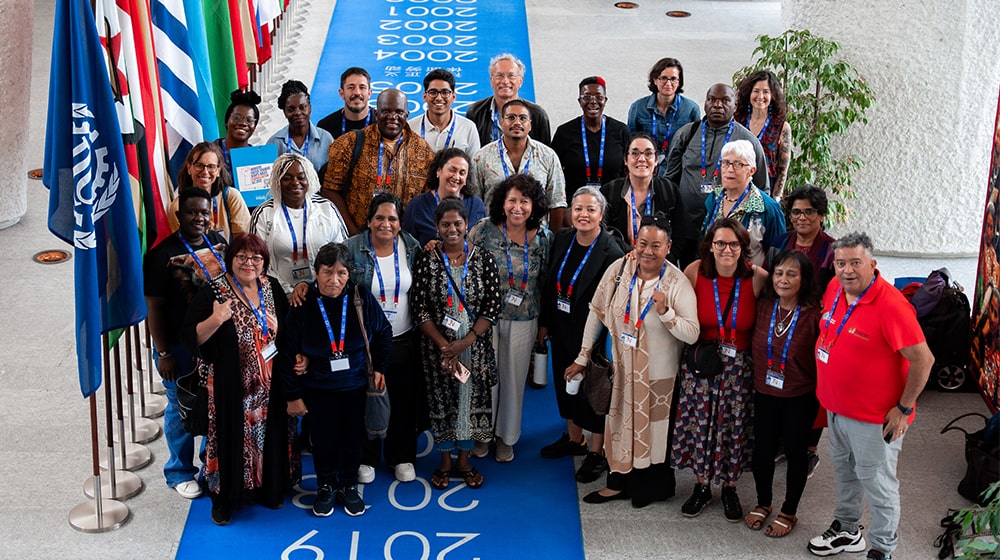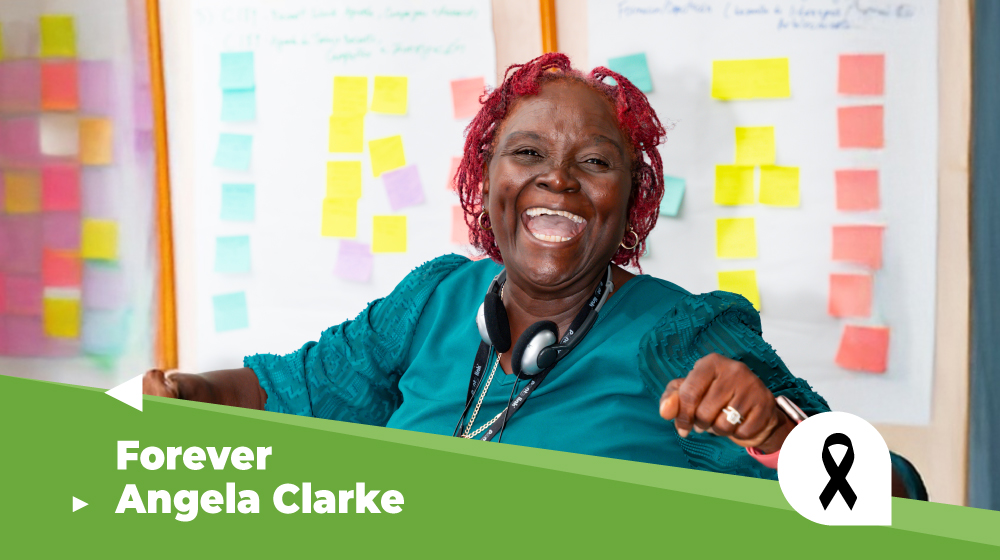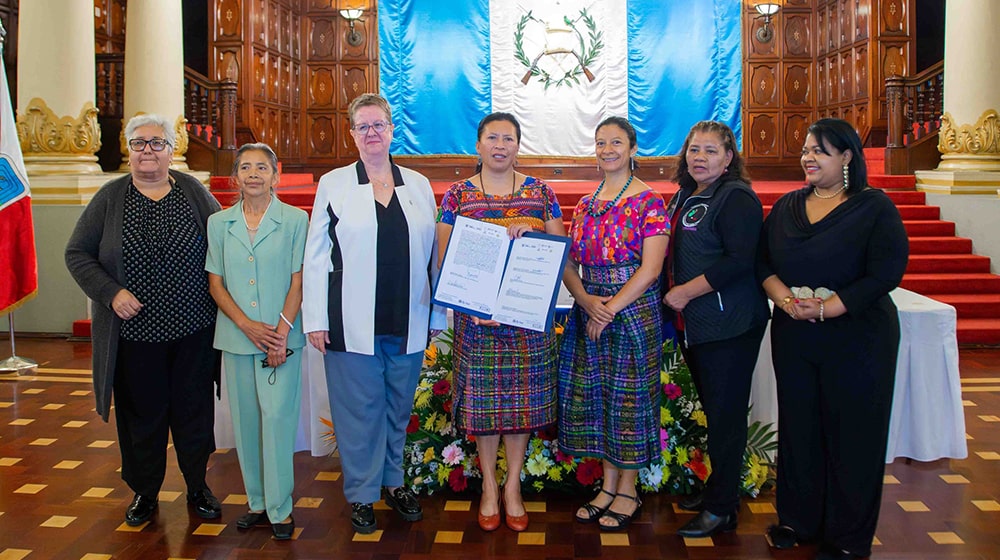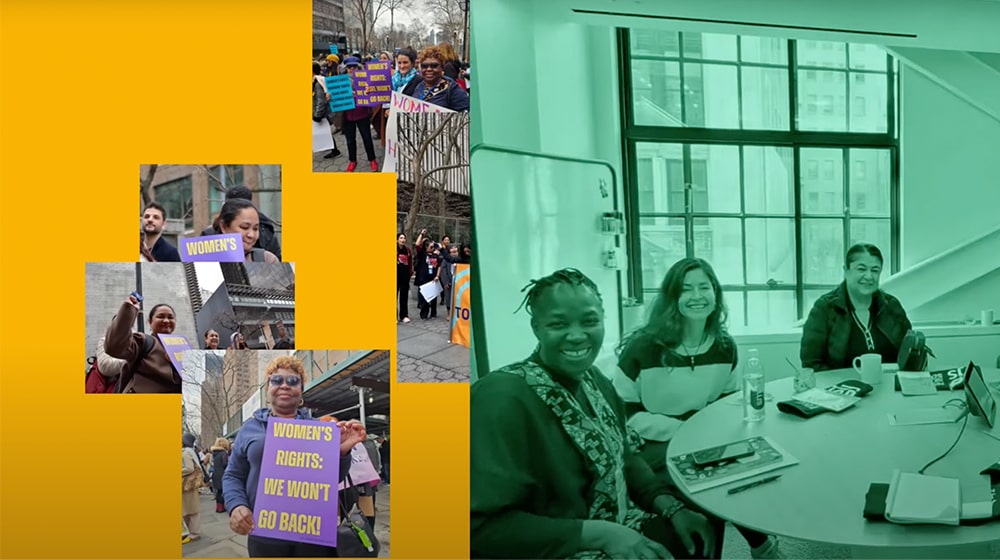#NoExcuse: Act Now to End Violence against Domestic Workers!
The International Day for the Elimination of Violence against Women is an opportunity to strengthen our struggle for a world of work free from violence and harassment for domestic workers. Today, on the brink of the 30th anniversary of the Beijing Declaration and Platform for Action, and in light of the commitment made in the 2030 Sustainable Development Goals to leave no one behind, we make a strong call to end violence against domestic workers and ensure them decent work, a dignified life, and the full exercise of their human rights. There is no excuse for inaction!
“Domestic workers are among the women most vulnerable to violence and harassment in the workplace. This violation of our human rights is not inevitable: it can and must be stopped. Today, we raise our voices to demand respect for our right to decent work and a dignified life. We call on governments to ratify ILO Conventions 189 and 190 and to adopt laws and public policies that amplify our voices and ensure a work environment free from all forms of violence. It’s time to act. It’s time to care for the women who care for others.”
Carmen Brítez, IDWF President
A Disproportionately Vulnerable Sector
Domestic workers (DWs) are among the women most affected by violence and harassment in the workplace due to a confluence of factors. This ongoing phenomenon harms their physical and psychological health, impacts their economic situation and social participation, and denies them access to decent work and dignified life. Violence against DWs is a serious human rights violation that manifests in various forms (not just physical aggression), often normalized (IDWF, 2019), including economic, psychological, or verbal violence, harassment, sexual abuse, exploitation, and forced labor.
The vast majority of DWs belong to the most disadvantaged groups of the population and experience multiple forms of intersectional discrimination based on gender, race, ethnicity, skin color, socio-economic status, educational level, disability, origin, and migration status, among others (IDWF, 2020). The deep power imbalance between them and their employers further increases their vulnerability to workplace violence. Moreover, the fact that domestic work is performed in private homes, in isolation, and out of the public eye makes inspection and detection of violence and harassment situations difficult.
Additionally, over 80% of DWs globally are employed informally, outside the coverage of labor laws and without access to social protection. This leaves them defenseless against any rights violations, with few resources to report abusers, no health coverage or psychological support, no income, and thus little leeway to leave their jobs. The most dependent DWs, such as live-in workers, whose workplace is often their only residence, or migrant workers, whose residence permits and labor status are tied to their employers, are the most exposed to workplace violence and harassment.
Migrant DWs often endure abusive practices from recruiters and employers, as they are excluded from labor laws, lack access to justice, do not have a local support network, and have no right to freedom of association. When their migration status is irregular, the risks and lack of protection are even greater, but the fear of losing their jobs, being jailed, or deported silences them about their rights violations. It is no coincidence that domestic work is among the five sectors with the highest number of adults in forced labor and one of the sectors with the highest number of children in conditions of modern slavery (ILO, 2024).
Low reporting is a common issue in the sector: domestic workers often refrain from reporting abusive employers due to reasons such as the normalization of abuse, a lack of awareness about their rights and available legal resources, or fear of stigmatization, retaliation, and/or job loss. This is further compounded by the discouragement stemming from the complexity of reporting mechanisms and legal procedures, the impunity often afforded to perpetrators, and the lack of redress for victims.
Time to Change the Narrative
A strong and determined women’s movement is key to changing narratives and policies leading to the eradication of violence in the world of work. For this reason, today, domestic workers make a vigorous call on governments to:
- Ratify and effectively implement ILO Conventions 189 and 190.
- Adopt laws and public policies to adequately prevent and address GBV against DWs, taking into account the sector’s specificities and recognizing private homes as workplaces subject to inspection.
- End the exclusion of DWs from labor laws and social protection, as well as discriminatory regulations against them, especially for migrant DWs and those employed informally. This includes the right to freedom of association.
- Promote pathways to the formalization of domestic work.
- Invest in the adoption of national action plans to prevent and eradicate GBV against DWs (awareness-raising campaigns, training programs, public services to support victims, production of statistics).
- Include GBV as an occupational health and safety risk in domestic work, ensuring that DWs are covered by workers’ compensation insurance.
- Properly investigate cases of violence and hold perpetrators accountable.
- Ensure effective access to justice, fair redress, and protection for DWs victims of violence, setting efficient complaint mechanisms, dispute resolution systems, and simple legal procedures.
- Promote social dialogue and collective bargaining with DW organizations, ensuring that the sector’s voices are heard in the development of policies to combat violence.
Around 76 million domestic workers, over 80% of whom are women, meet the care needs of the global population, being essential for the functioning of societies and economies. These women have the right to a safe and healthy working environment. Any form of violence or harassment against them is a violation of their human rights that can and must be stopped. Join us and make #DecentWork a reality for domestic workers!
#NoExcuse
#16Days
#Unite
Download here

